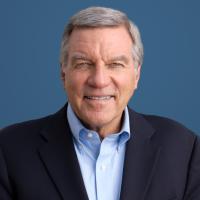Israelis Furious Over Starved Released Hostages' Condition; Trump Warns, 'We're Going to Lose Our Patience'
JERUSALEM, Israel – Three more hostages came out of Gaza this weekend. However, their Hamas captors had starved them and turned them into living skeletons.
The sight of the hostages brought severe reactions from both Israel and the U.S.
Surrounded by Hamas gunmen, Ohad Ben-Ami, Or Levy, and Eli Sharabi were led to a stage, made to recite a propaganda message by Hamas, and then released to the Red Cross.
The ceremony included Gazan women blessing Hamas fighters with candy.
Israel's Deputy Foreign minister was appalled. She told CBN News, “It's absolutely heartbreaking. I mean, don't get me wrong. Our heart was full of joy to see them coming back home. But it was absolutely heartbreaking to see how they've been treated – seeing on their face the hell they've been through, being starved, being abused.”
Haskel also noted that others must share the blame with Hamas.
“Knowing how the international community, the United Nations organization, have failed the Israelis – they have failed the Jews over and over again," she said.
Haskel accused another agency as well. "The Red Cross, who did not fight to visit them, to look after them, to provide them the medications they needed or the help, the medical treatment they needed."
The hostages' condition also prompted a warning from President Donald Trump. "They were in horrible condition. They were emaciated. It looked like many years ago, the Holocaust survivors. I don't know how much longer we can take that," he stated.
"You know, at some point," Trump added, "we're going to lose our patience."
Israeli Prime Minister Benjamin Netanyahu declared, "We have again seen the monsters of Hamas. These are the same monsters who slaughtered our citizens and abused our hostages. I say to them again: They will pay the price."
Israeli President Isaac Herzog told the BBC the men were kept in tunnels throughout their entire captivity.
Medical authorities say the former hostages suffer from malnutrition and heart disorders. Israeli media ran before-and-after photos to show the hostages' shocking deterioration.
Michael Levy spoke of his brother Or's nightmarish captivity. He said, "For 16 months, he was barefoot, hungry, and in constant fear that every day was his last."
Dr. Yael Frenkel Nir, director of Sheba General Hospital, announced, "The situation of the returnees who arrived today arouses in us a deep and serious concern for the fate of those who remain in captivity."
She continued, "Keeping humans in captivity in such deplorable conditions has serious health consequences."
Yulie Ben-Ami, the daughter of released hostage Ohad Ben-Ami summed up the feelings of many in Israel when she said, "He lost much of his weight, but not his spirit. My father is strong and I admire him. He survived hell. The return of the hostages yesterday leaves no room for doubt that they all must return."
Gal Hirsch, Israel's coordinator for hostages, noted, "The shocking sights we saw today touch the hearts of all of us and join the vivid and burning memory of October 7, 2023."
Netanyahu and Trump have reportedly agreed on Israel's conditions for the second phase of the ceasefire deal. That includes Hamas leaders going into exile, their military disarming, and all the rest of the hostages being freed.
Yet, Hamas is likely to reject these conditions, especially releasing the remaining hostages, the terror group's only real bargaining chip.
As for Hamas, its chief demand continues to be that Israel end the war and remove all its troops from Gaza.
Trump says he's still committed to his bold proposal for the U.S. to take over and rebuild Gaza into the "Riviera" of the Middle East, but he's willing to let others in on the deal.
"We may give it to other states in the Middle East to build sections of it. Other people may do it through our auspices. But we're committed to owning it, taking it, and making sure that Hamas doesn't move back. There's nothing to move back into. The place is a demolition site."
Skeptics warn Hamas would surely murder any Palestinians attempting to move out of Gaza, but Trump insists that won't happen.
"We're going to take care of the Palestinians," he pledged. "We're going to make sure they live beautifully and in harmony and in peace, and that they're not murdered. This has been the most dangerous site anywhere in the world to live in. Hamas has been a disaster."
On his return to Israel from the U.S., Netanyahu said of Trump's Gaza plan that it is "revolutionary, creative – and we're discussing it. He is very determined to carry it out. It opens up many opportunities for us."
And the prime minister summed up what he sees as the future for Gaza and the hostages. "Hamas will not be there," Netanyahu declared. "We will eliminate Hamas, and we will return our hostages."






